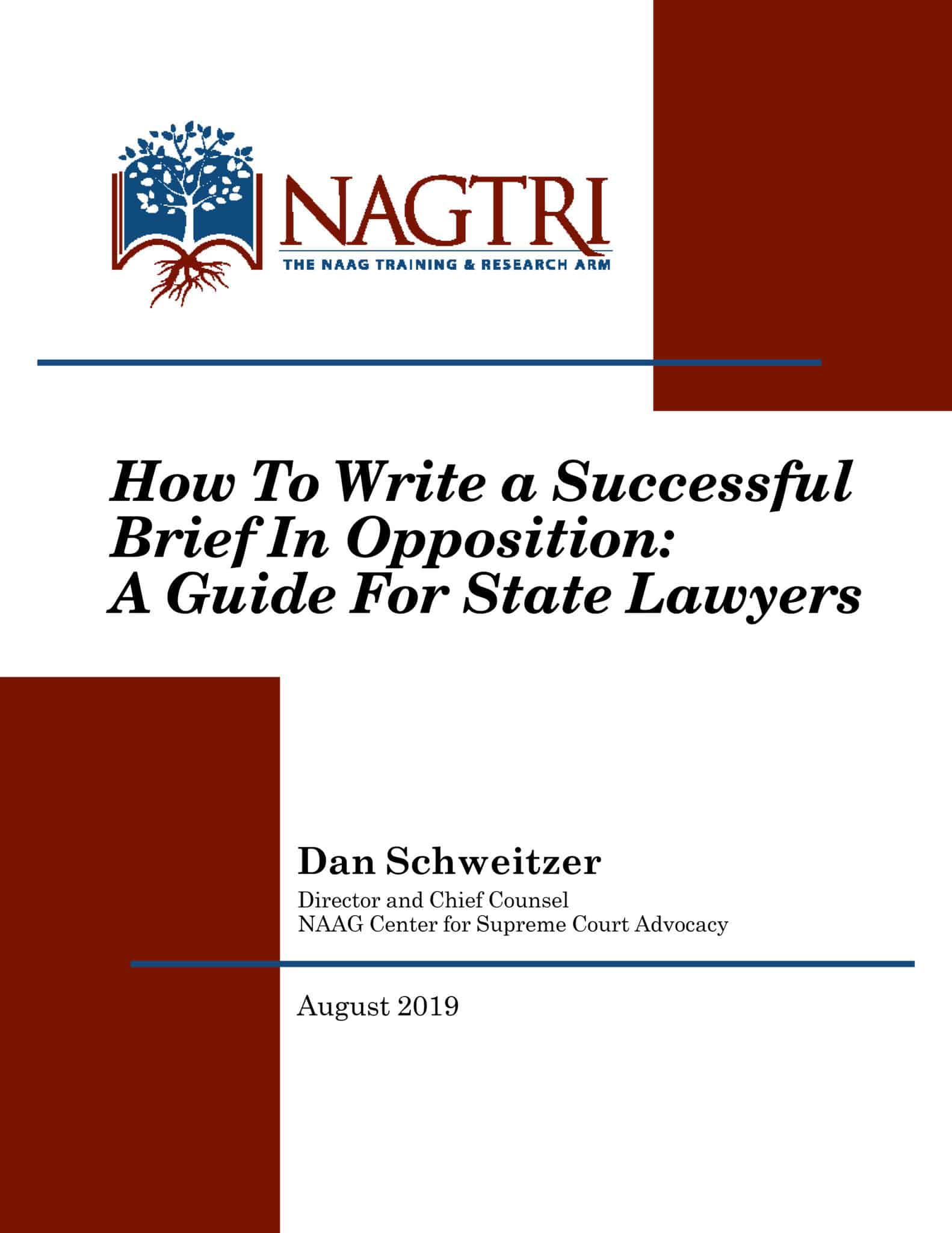Briefs opposing cert petitions — known as Briefs in Opposition or BIOs — might be the most important briefs state attorneys file with the U.S. Supreme Court. They are certainly the most numerous. And each one of them is trying to preserve a lower court victory. The Supreme Court reverses far more than it affirms, meaning that if your BIO fails and the Court takes the case, the state will likely lose on the merits—creating a nationwide rule of law on an issue potentially very important to state government operations and your citizens.
The guide will begin with an overview of the statistical odds of a cert grant and the Justices and their clerks’ process for reviewing the 120 or so cert petitions distributed to them each week. It will then address the threshold question whether you should even file a Brief in Opposition or should instead waive a response. The manual will next turn to the Court’s criteria for granting petitions—you can’t tell the Court why it shouldn’t take a case unless you know the reasons why it sometimes grants review. The guide next turns to the heart of the matter, carefully laying out the specific arguments you can make for why certiorari should be denied. Finally, the guide will address a few miscellaneous items and some matters of style.
Related
U.S. Supreme Court Brief Writing Style Guide
How to Write a Successful Cert Petition: A Guide for State Lawyers



